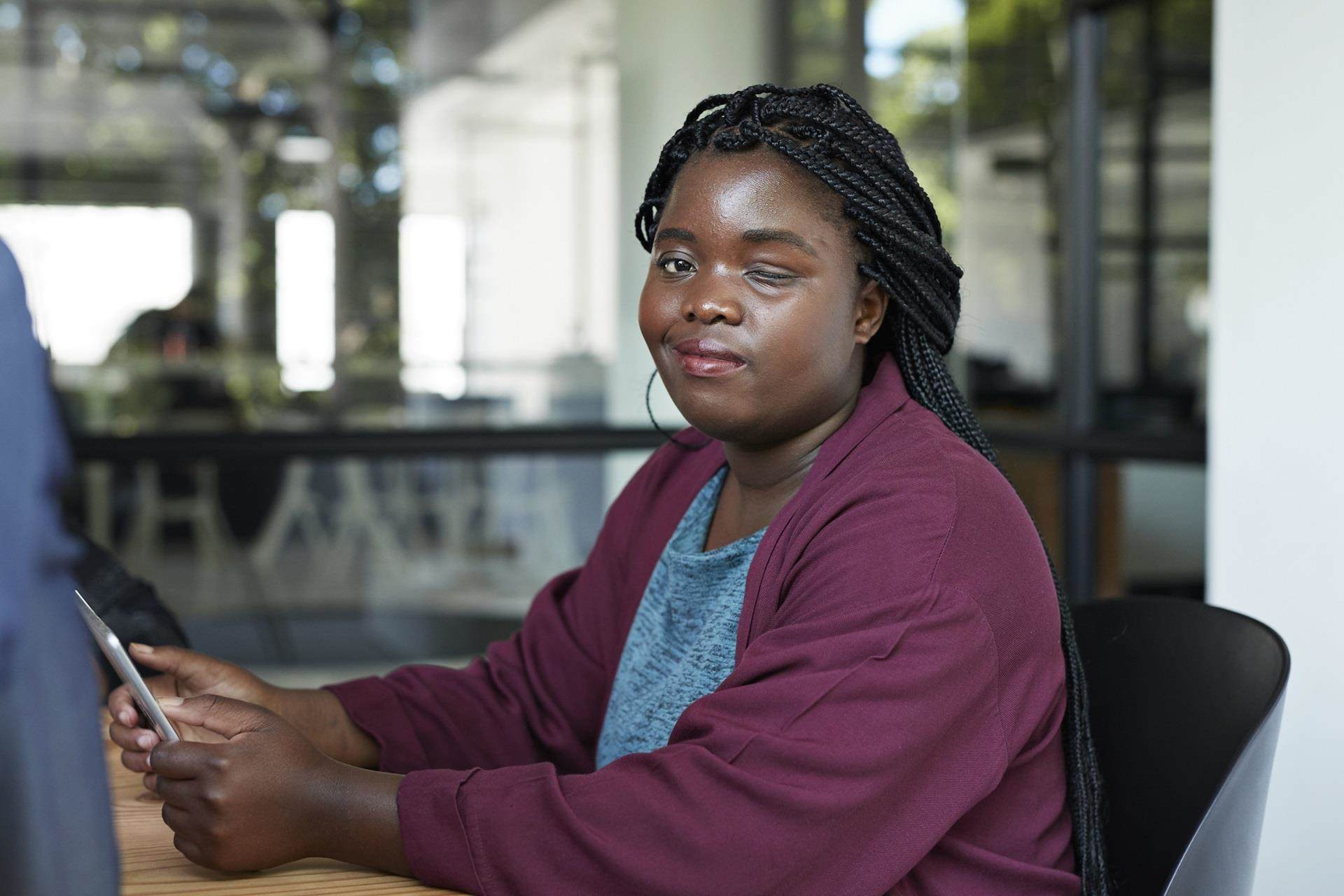
Blind SA
Economic Empowerment Project for blind and partially sighted people
Improve access to healthcare
Reduce hunger and poverty, and improve livelihoods
Africa and Middle East
2022-2023
UN Sustainable Development Goals






The issue
Globally, the World Health Organization estimates there are 2.2 billion people living with blindness, or moderate or severe visual impairment.
In terms of regional differences, the prevalence of distance vision impairment in low- and middle-income regions is estimated to be four times higher than in high-income regions.
The estimated prevalence of blindness in South Africa is 0.75 per cent of the population – around 360,000 people. And these people, in addition to the challenges that affect their lives and wellbeing, face knock-on effects for their economic prospects - with the untapped potential affecting the country’s development more widely.
Vision impairment poses an enormous global financial burden. For example, the annual global costs of productivity losses associated with vision impairment from uncorrected myopia and presbyopia alone were estimated to be US$ 24.4 billion and US$ 25.4 billion, respectively.
Countries such as South Africa, that are developing against the range of general challenges set out in the UN Sustainable Development Goals, can face additional difficulties in supporting people with sight loss.
It is estimated that 97% of visually impaired South Africans are unemployed. When people begin to lose their sight they might well lose their job and be isolated from other people. Yet people who are blind or visually impaired can be found working in most industries - the right assistance can successfully help integrate blind people into new roles and into businesses.
Another challenge is the cultural beliefs that people encounter. These beliefs can connect blindness to ideas about fear, ignorance, incapability and dependence. Negative ideas influence the way that society interacts with blind people.
In South Africa, rehabilitation services operate as charities funded in part by government but relying increasingly on donations from the corporate sector and the public.
Croda Foundation is delighted to be supporting the leading charity Blind SA, to help with a grant to aid the economic empowerment of blind people in the country.
Blind South Africa
Blind SA originally started on 26 October 1946 as the South African Blind Worker’s Organisation to help the blind find meaningful careers. Based in Johannesburg, they serve the blind community in the country.
To end the cycle of poverty for blind South Africans, Blind SA aims to empower people with knowledge and information through education, braille and developmental services. By breaking down barriers, providing opportunities and creating answers, they are focussed on improving quality of life for the blind community – empowering them to live the life they choose.
Blind SA has a proud record of placing blind people in new jobs, establishing braille services, awarding training bursaries, offering skills development services, and advocating and lobbying on behalf of blind people in the country.
Insisting on self-representation and working and speaking from the viewpoint of blind people, they stand for equality, advocating the rights of the blind throughout South Africa. They are working to achieve an empowered blind community with equal opportunities to achieve their full potential.
Find out more about Blind SA on their website.

The project
Getting a job is the starting point of self-sufficiency and dignity for most people, with no exception for people who are blind or visually impaired.
Awarded a grant of £71,083 by Croda Foundation, Blind SA’s economic empowerment project aims to benefit unemployed blind and partially sighted people in South Africa.
All South Africans have equal rights regardless of disabilities. However, there are still challenges facing the disabled within the workplace. This project aims to support with the right skills, training and technology to help blind and visually impaired people into the jobs they want to do.
The goal is for blind and partially sighted citizens in South Africa to continue into long-term employment, growth and success. By assisting with the appropriate training, acquiring relevant equipment and information, as well as addressing current and potential issues, Blind SA helps workers remain employed.
The grant has enabled Blind SA to establish a training centre that offers support to small, medium and micro businesses. The Centre will provide training facilities for food tasting, training 30 candidates as panellists of food tasters in Benoni and Hillcrest (KwaZulu-Natal). The initiative will enable economic empowerment for those candidates trained through long-term employment.
Croda expertise and know-how
This project is utilising Croda’s expertise and know-how from Iberchem South Africa on providing skills training on flavours and fragrances
Smart science to improve lives
This approach is underpinned by Croda’s philosophy to use Smart science to improve lives.™
Find out more on Croda International’s website: https://www.croda.com/en-gb/smart-science
Impact
30 unemployed blind and partially sighted people will go on to be trained in food tasting
20 blind and partially sighted people will go on to join a development programmeleading to long-term employment
Croda Foundation, established in 2020, is an independent charitable company set up by FTSE 100 specialty chemicals company, Croda International Plc, and is registered in England and Wales (number: 1196455). The Foundation is solely funded by generous donations from Croda International Plc and led by an independent Board of Trustees.


